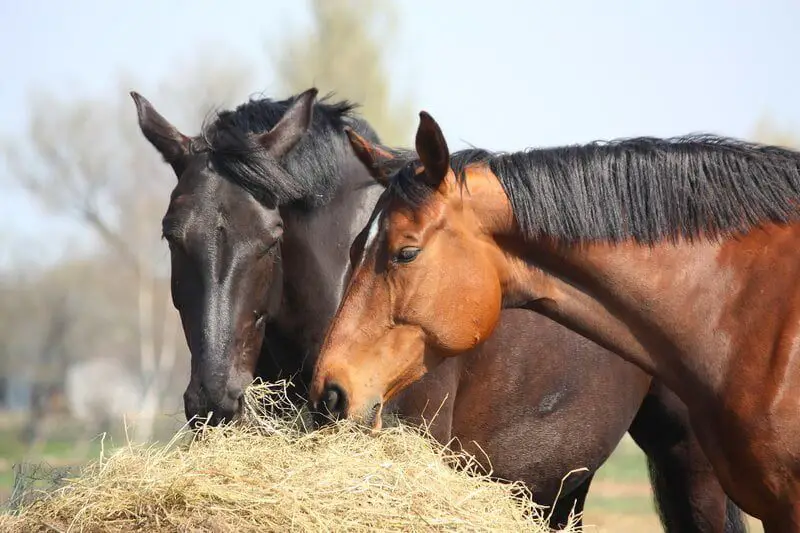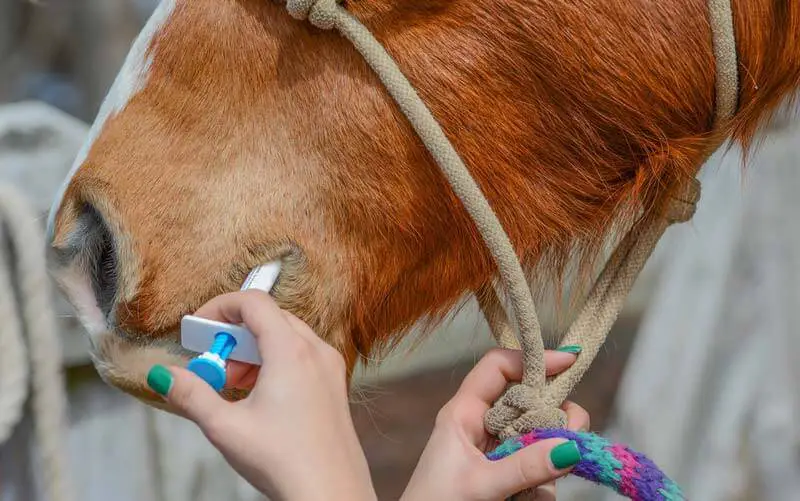 Maintaining a healthy weight and body condition throughout every stage of life is essential for your horse. However, before you begin trialling the feed recommendations outlined in this article, you must first understand the cause behind any unexpected weight loss.
Maintaining a healthy weight and body condition throughout every stage of life is essential for your horse. However, before you begin trialling the feed recommendations outlined in this article, you must first understand the cause behind any unexpected weight loss.
As a horse owner, you’ve no doubt come across the term ‘good doer’, which refers to horses that can easily maintain body weight. For those who aren’t so lucky, other horses may struggle to maintain weight and condition, even with correct feeding, which leads us to question why.
Weight Loss
There are a number of reasons why your horse may be losing weight. Before you immediately turn to diet to find the answers, you must first assess your horse’s:
- Dentition
- De-worming
- Exposure to stress
- Overall health
Dentition
Poor oral health can lead to compromised digestion and dental disease. One of the most common complaints is sharp enamel points, which are caused by uneven wear and irregular filing. These points interfere with your horse’s chewing, leaving them unable to properly grind their food, thus impeding their ability to absorb nutrients.
De-worming
An ineffective de-worming regime can lead to an excessive parasite burden in your horse’s gastrointestinal tract. These nasty critters may be competing directly for the nutrients within your horse’s food and causing damage to the intestinal lining, in turn, diminishing nutrient absorption.
Exposure to stress
Stabling, regular transportation and a heavy competition schedule can leave your horse stressed, which may affect their weight and condition. Likewise, performance and racing horses on high grain diets may develop gastric ulcers, which are incredibly painful and may discourage eating.
Overall health
Heathy weight and body condition are two signs of good health, as such the presence of illness, infection or disease should also be ruled out. At times, illness may affect your horse’s appetite, leaving them disinterested in food; at other times, disease may limit nutrient absorption.
Weight Loss
If none of the above are involved in your horse’s weight loss, it’s time to turn to diet to promote safe weight gain. Of all the ingredients in a well-balanced diet, fibre, carbohydrates and fats are the three energy sources integral in gaining — and maintaining — body weight.
- Fibre
Above all, fibre is the most important component in your horse’s diet. If weight gain is your goal, adding fibre to your horse’s diet is the first step. However, not all fibre was created equal.
When compared to grass hay of similar quality, lucerne hay has been shown to have superior energy content and digestibility. Alternative fibre sources, such as the ‘super fibres’, including beet pulp, and soy or lupin hulls, provide an even richer source of highly digestible fibre.
- Carbohydrates
While the carbohydrates sugar and starch are the most efficient energy source, due to their simple enzymatic process, complications can arise when feeding too much grain.
To safely add weight, carbohydrates may be used in your horse’s diet. However, a strict ratio of 70:30 fibre to carbohydrates should be followed at all times. In addition, no more than 2kg of grain should be fed in a single meal; instead, grain should be divided over 2-3 meals per day.
- Fats
If you’re seeking an alternative to grains, look no further than fats in the form of vegetable oils, such as soy, rice bran and canola oil, which contain up to three times more digestible energy.
Fats not only add calories to your horse’s diet, without the need for large amounts of grain, but feeding fats has many health benefits, including improving skin and coat condition, decreasing excitable behaviours and avoiding the health complications of high grain diets.



